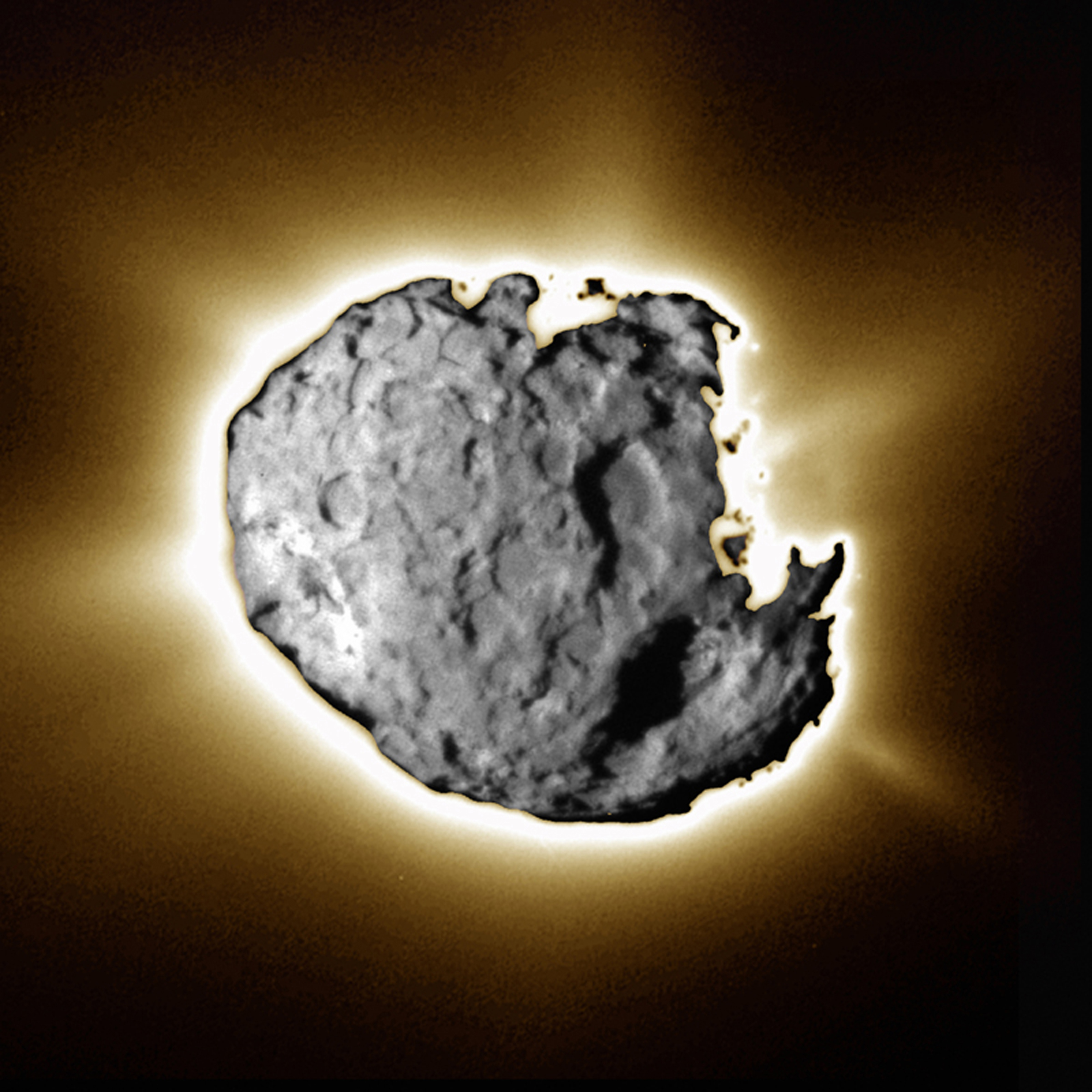M
MeteorWayne
Guest
Just a brief comment.
So far we have seen 4 comet nuclei close up (IIRC). All have shown that most of the surface is inactive with a rocky or possible organic goo layer covering > 90% of the surface. The emissions that create the coma come from very limited areas on the surface. Therefore I don't understand why it should be terribly surprising that the ONE experiment we have conducted, impacting an object into a cometary surface, excavated an area that had little or no ice.
9P/ Tempel 1 is not a particulary active comet (certainly much less so than Halley, or Hale-Bopp) so it would be expected that it's active areas would be even smaller.
The icy content of comets is beyond dispute, considering the spectral measurements showing numerous ice decay by products in the coma of every comet that has been examined in such a way...dozens of them by the way, since a close up is not needed for that.
MW
So far we have seen 4 comet nuclei close up (IIRC). All have shown that most of the surface is inactive with a rocky or possible organic goo layer covering > 90% of the surface. The emissions that create the coma come from very limited areas on the surface. Therefore I don't understand why it should be terribly surprising that the ONE experiment we have conducted, impacting an object into a cometary surface, excavated an area that had little or no ice.
9P/ Tempel 1 is not a particulary active comet (certainly much less so than Halley, or Hale-Bopp) so it would be expected that it's active areas would be even smaller.
The icy content of comets is beyond dispute, considering the spectral measurements showing numerous ice decay by products in the coma of every comet that has been examined in such a way...dozens of them by the way, since a close up is not needed for that.
MW







